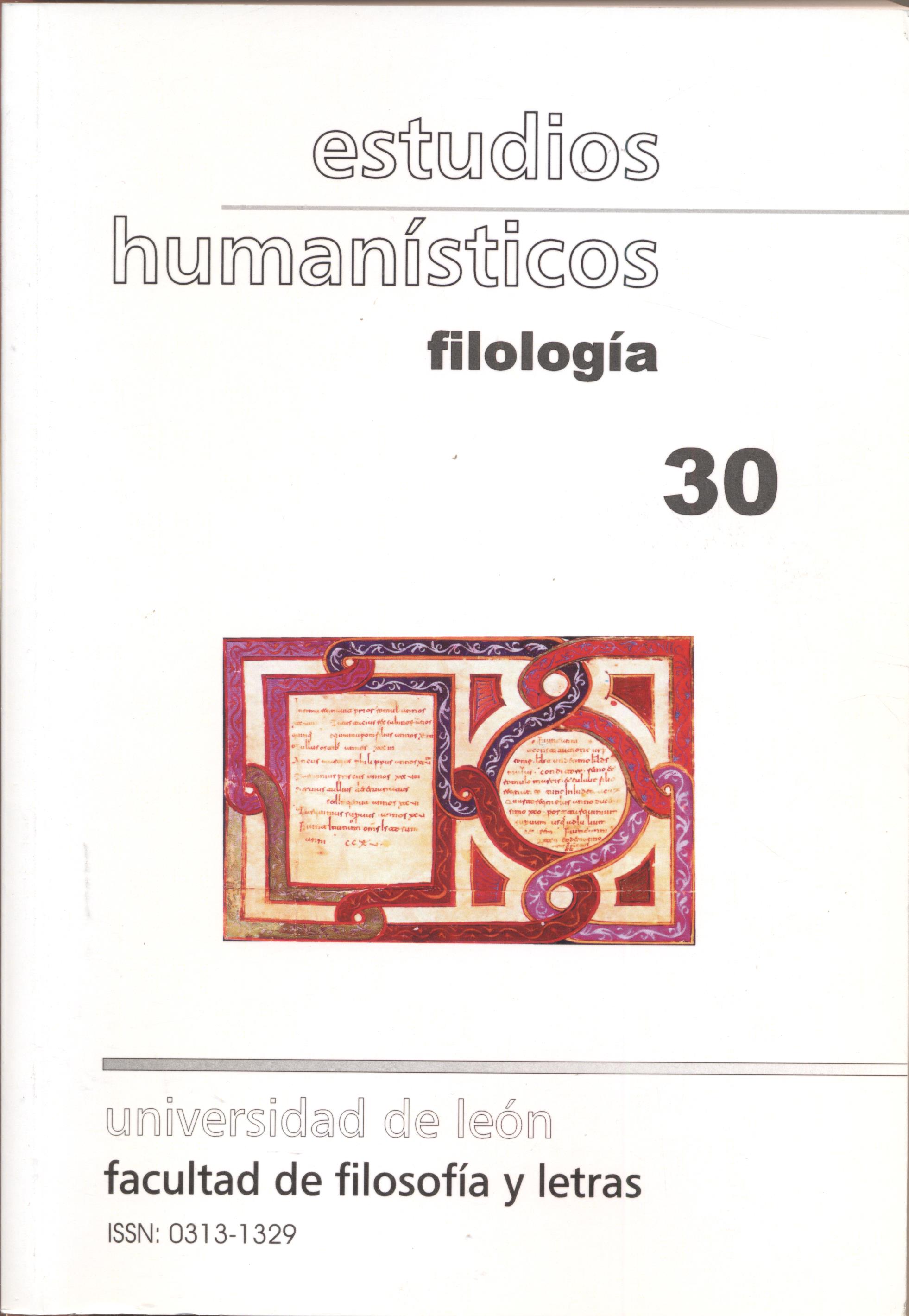From boys to men in Edward Bulwer-Lytton's Pelham and Horatio Alger's "Struggling Upward": the dandy and the self-made man coming of age
DOI :
https://doi.org/10.18002/ehf.v0i30.2853Mots-clés :
Literatura inglesa, Masculinidad, América, Siglo XIX, Inglaterra, Narrativa, Nación,Résumé
En la Inglaterra victoriana y la América decimonónica, las narraciones de aventuras se convirtieron en un género privilegiado para inculcar determinados valores a los chicos jóvenes. A pesar de la supuesta universalidad que suele caracterizar a estos relatos, las concepciones de nación y género que presentan suelen caracterizar a sus países de origen. El escritor inglés de la época victoriana Edward Bulwer-Lytton, en su temprana novela, Pelham (1828), retrata el paso del joven protagonista hacia la madurez mientras adquiere los valores socialmente acceptados en el periodo victoriano. Al otro lado del Atlántico, Horatio Alger favoreció la creación del 'sueño americano' a través de novelas como Struggling Upward (1890), describiendo a jóvenes convertiéndose en hombres hechos a sí mismos. Este artículo tiene como objetivo analizar cómo las concepciones transatlánticas de nación y masculinidad se construyen en ambas novelasTéléchargements
Métricas alternativas
Références
ALGER, H., JR. ([1890] 1985): Ragged Dick and Struggling Upward, New York, The Penguin American Library.
BARNEY, W. (ed.) (2006): A Companion to 19th-Century America, Oxford, Blackwell.
BAYM, N. (ed.) (1999): The Norton Anthology of American Literature, London and New York, Norton.
BODE, C. (1985): “Introduction”, in Ragged Dick and Struggling Upward, New York, The Penguin American Library, (1985): ix-xxi.
BULWER-LYTTON, E.G. ([1828] 1848): Pelham; or, The Adventures of a Gentleman, London, Chapman and Hall.
CAMPBELL, J. L. (1986): “Bulwer’s Byronic Apprenticeship and His Early Novels, 1820-29”, Edward Bulwer-Lytton, Boston, Twayne (1986): 22-37.
CHRISTENSEN, A.C. (ed.) (2004): The Subverting Vision of Bulwer-Lytton: Bicentenary Reflections, Newark, University of Delaware Press.
CRONIN, R. (2004): “Bulwer, Carlyle, and the Fashionable Novel”, The Subverting Vision of Bulwer-Lytton: Bicentenary Reflections, in Allan Conrad Christensen (ed.)
(2004): 38-53.
ENGERMAN, S. L. and R. E. GALLMAN (2006): “The Emergence of a Market Economy before 1860”, in William L. Barney (ed.) (2006): 121-138.
FRANKLIN, B. (1999): “The Autobiography”, in Nina Baym (ed.) (1999): 223-285.
GLICK, E. (2001): “The Dialectics of Dandyism”, Cultural Critique, 48: 129-163.
GOLDFARB, R.M. (1962): “Late Victorian Decadence”, The Journal of Aesthetics and Art Criticism, 20:4: 369-373.
HUGUES, W. (1992): “Silver Fork Writers and Readers: Social Contexts of a Best
Seller”, NOVEL: A Forum on Fiction, 25: 3: 328-347.
KING, M.F. and E. ENGEL (1981): “The Emergian Carlylean Hero in Bulwer’s Novels of the 1830s”, Nineteenth-Century Fiction, 36:3: 277-295.
LANE, C. (1994): “The Drama of the Impostor: Dandyism and Its Double”, Cultural Critique, 28: 29-52.
MITCHELL, L. (2003): “Society”, Bulwer Lytton: The Rise and Fall of a Victorian Man of Letters, London and New York, Hambledon and London (2003): 87-107.
OAKLEY, J.W. (1992): “The Reform of Honor in Bulwer’s Pelham”, Nineteenth-Century Literature, 47:1: 49-71.
PITOFSKY, A. (1998): “Dreiser’s The Financier and the Horatio Alger Myth”, Twentieth Century Literature, 44:3: 276-290.
ROSSBACH, S. (1999): “Dandyism in the Literary Works of Barbey d’Aurevilly: Ideology, Gender, and Narration”, Modern Language Studies, 29: 1: 81-102.
SAISSELIN, R. G. (1956): “Dandyism and Honnetete”, The French Review, 29:6: 457-460.
SARACHEK, B. (1978): “American Entrepeneurs and the Horatio Alger Myth”, The Journal of Economic History, 38:2: 439-456.
SPENCE SMITH, T. (1974): “Aestheticism and Social Structure: Style and Social Network in the Dandy Life”, American Sociological Review, 39: 5: 725-743.
TUCKER, H.F. (ed.) (2005): A Companion to Victorian Literature and Culture, Oxford, Blackwell.
VANDEN BOSSCHE, C. R. (2005): “Moving Out: Adolescence”, in H.F. Tucker (ed.) (2005): 82-96.
ZUCKERMAN, M. (1972): “The Nursery Tales of Horatio Alger”, American Quaterly, 24:2: 191-209.
Téléchargements
Publiée
Comment citer
Numéro
Rubrique
Licence
(c) Tous droits réservés Marta Miquel Baldellou 2008

Ce travail est disponible sous licence Creative Commons Attribution - Pas d’Utilisation Commerciale - Partage dans les Mêmes Conditions 4.0 International.
Los autores o autoras que publican en esta revista están de acuerdo con los siguientes términos:
- Los autores o autoras conservan los derechos de autoría de su trabajo y ceden de forma no exclusiva los derechos de explotación (reproducción, distribución, comunicación pública, transformación) a la Universidad de León, por lo que pueden establecer, por separado, acuerdos adicionales para la distribución no exclusiva de la versión de la obra publicada en la revista (por ejemplo, alojarlo en un repositorio institucional o publicarlo en un libro), con un reconocimiento de su publicación inicial en esta revista.
- Este trabajo se encuentra bajo la Creative Commons Attribution-NonCommercial-ShareAlike 4.0 International License. Puede consultarse desde aquí la versión informativa y el texto legal de la licencia.
- Se permite y se anima a los autores y autoras a difundir electrónicamente las versiones pre-print (versión antes de ser evaluada) y/o post-print (versión evaluada y aceptada para su publicación) de sus obras antes de su publicación, ya que favorece su circulación y difusión más temprana y con ello un posible aumento en su citación y alcance entre la comunidad académica.











